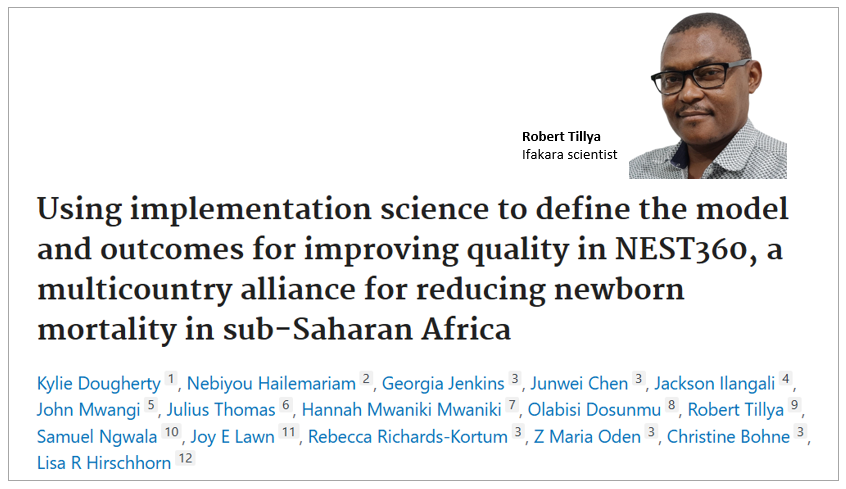
NEWBORN CARE: Blending research and practice can save lives, experts say

A groundbreaking global study has confirmed that integrating data-driven insights with research-based practices can significantly improve the quality of care for small and sick newborns—particularly in low-resource settings.
The research is part of the Newborn Essential Solutions and Technologies (NEST360) initiative, a multi-country alliance dedicated to reducing newborn deaths through evidence-based, sustainable solutions. The program is currently active in Tanzania, Kenya, Malawi, and Nigeria.
Published on the BMJ Quality and Safety, the study applied the Implementation Research Logic Model (IRLM) to identify the factors that support—or hinder—progress in newborn care. Researchers analyzed a wide range of sources, including program data, peer-reviewed literature, and team insights, to monitor implementation, track improvements, and uncover persistent challenges.
Integrating implementation research with quality improvement
NEST360 developed and applied a blended approach using implementation research (IR) and quality improvement (QI) methods to strengthen health systems for newborn care. The IRLM was applied to link local contexts with specific strategies and measurable outcomes, capturing successes and challenges of the improving quality approach.
The analysis identified 33 key factors influencing the delivery of newborn care. Among these, 42% were barriers, 42% were facilitators, and 15% played a dual role. To address these, the program introduced 10 strategic actions including capacity building, real-time data tracking through digital platforms, and ongoing mentorship.
Promising early results from NEST implementation tracker
Early results were promising: Reach with 100% of health units logged into the NEST Implementation Tracker (NEST-IT) at least once (October 2023 to March 2024), adaptation with 100% of units conducted at least one quality improvement project (April 2024 to June 2024), and feasibility with 93% reported their NEST-IT data in their QI project documentation (April 2024 to June 2024). The study also found that planning for the long-term sustainability of these improvements is very important.
A model for other countries
Researchers concluded that combining structured research tools with practical, on-the-ground action leads to faster and more effective improvements in newborn care. The success of this approach offers a model that can be used in other low-resource countries to help save more newborn lives.
“Integrating IR and QI enhances small and sick newborn care (SSNC) in resource-limited settings. Addressing barriers, leveraging facilitators, and applying structured IR frameworks advanced QI efforts, thereby improving reach, adoption, and feasibility while building scalable systems for high-quality healthcare,” the scientists noted.
Collaborators behind the study
The study was led by Kyle Dougherty and Lisa Hirschhorn from Northwestern University (USA). Other key contributors are from Rice360 Institute for Global Health Technologies within Rice University in Ethiopia, USA, Tanzania and Kenya, The Aga Khan University in Kenya, APIN Public Health Initiatives in Nigeria, Kamuzu University of Health Sciences in Malawi, and the London School of Hygiene & Tropical Medicine in the UK.
Notably, Robert Tillya, a senior scientist from the Ifakara Health Institute, contributed to the study through his work within the NEST program in Tanzania.
Read the publication here.
